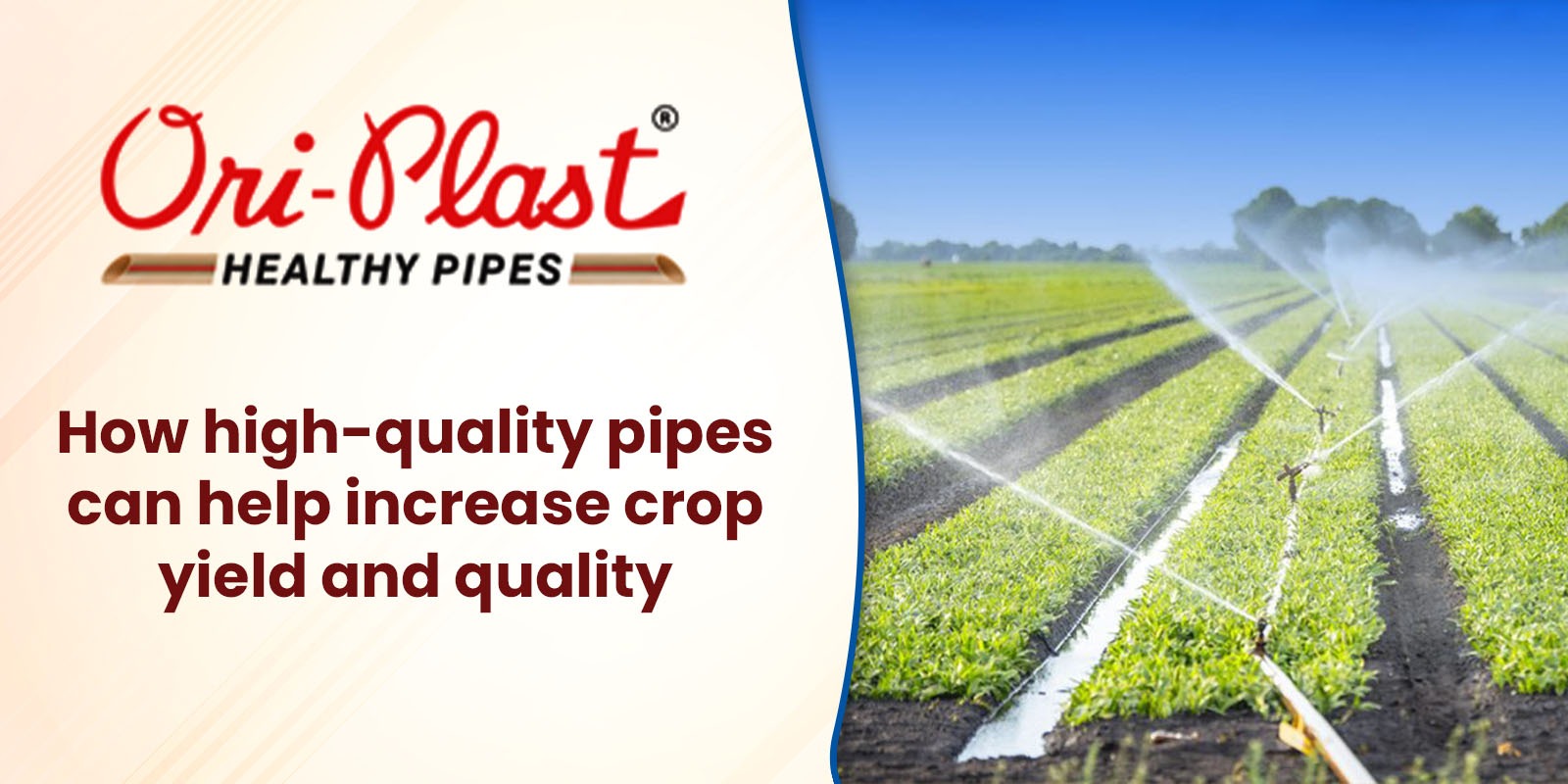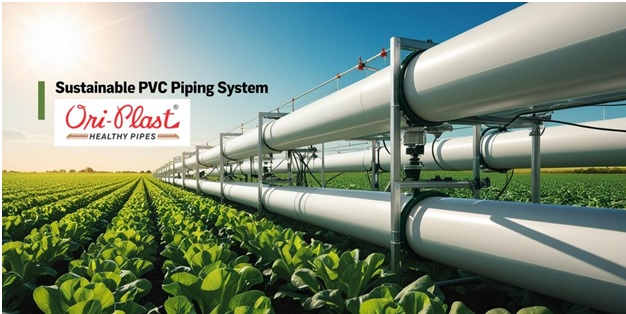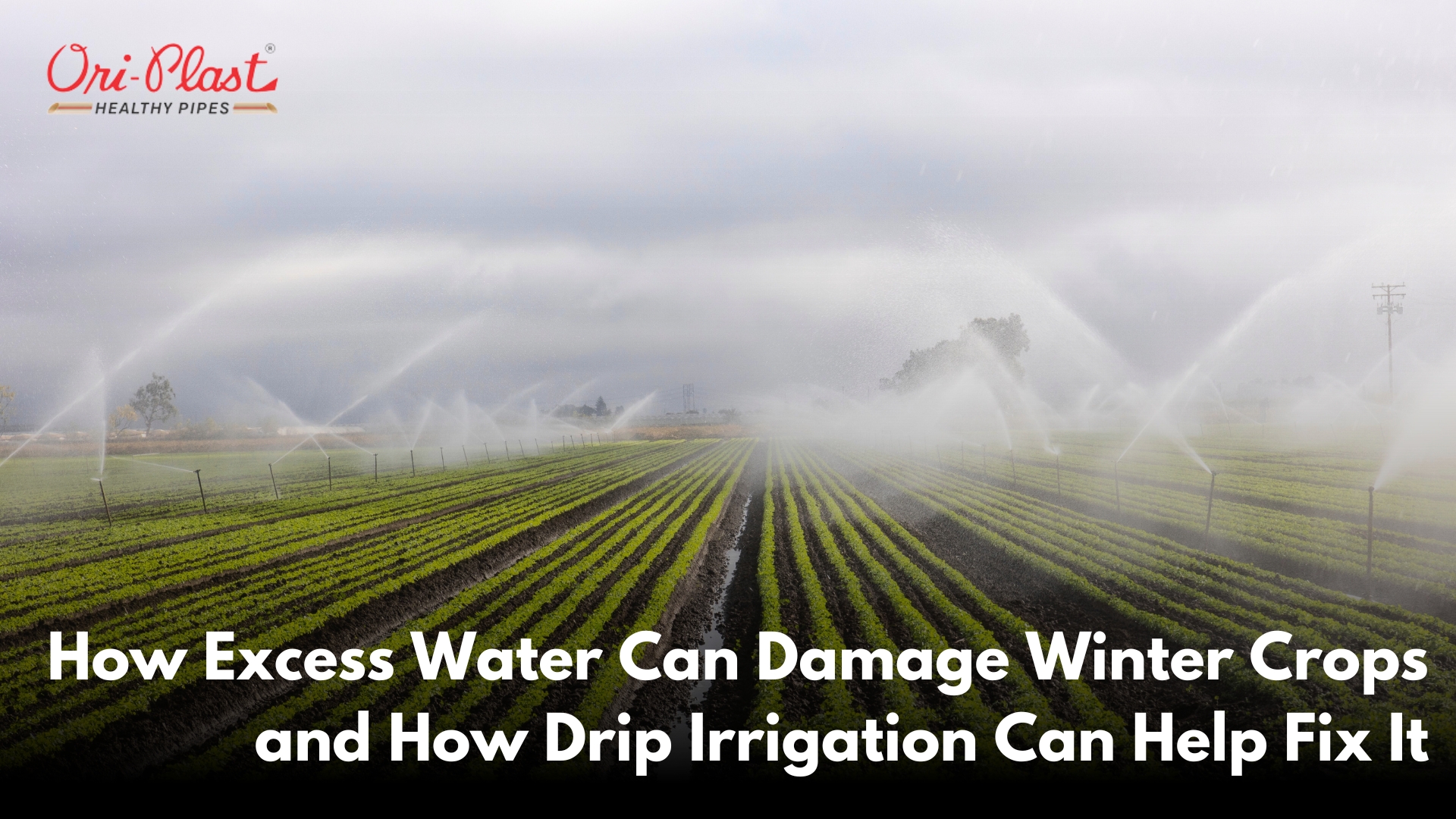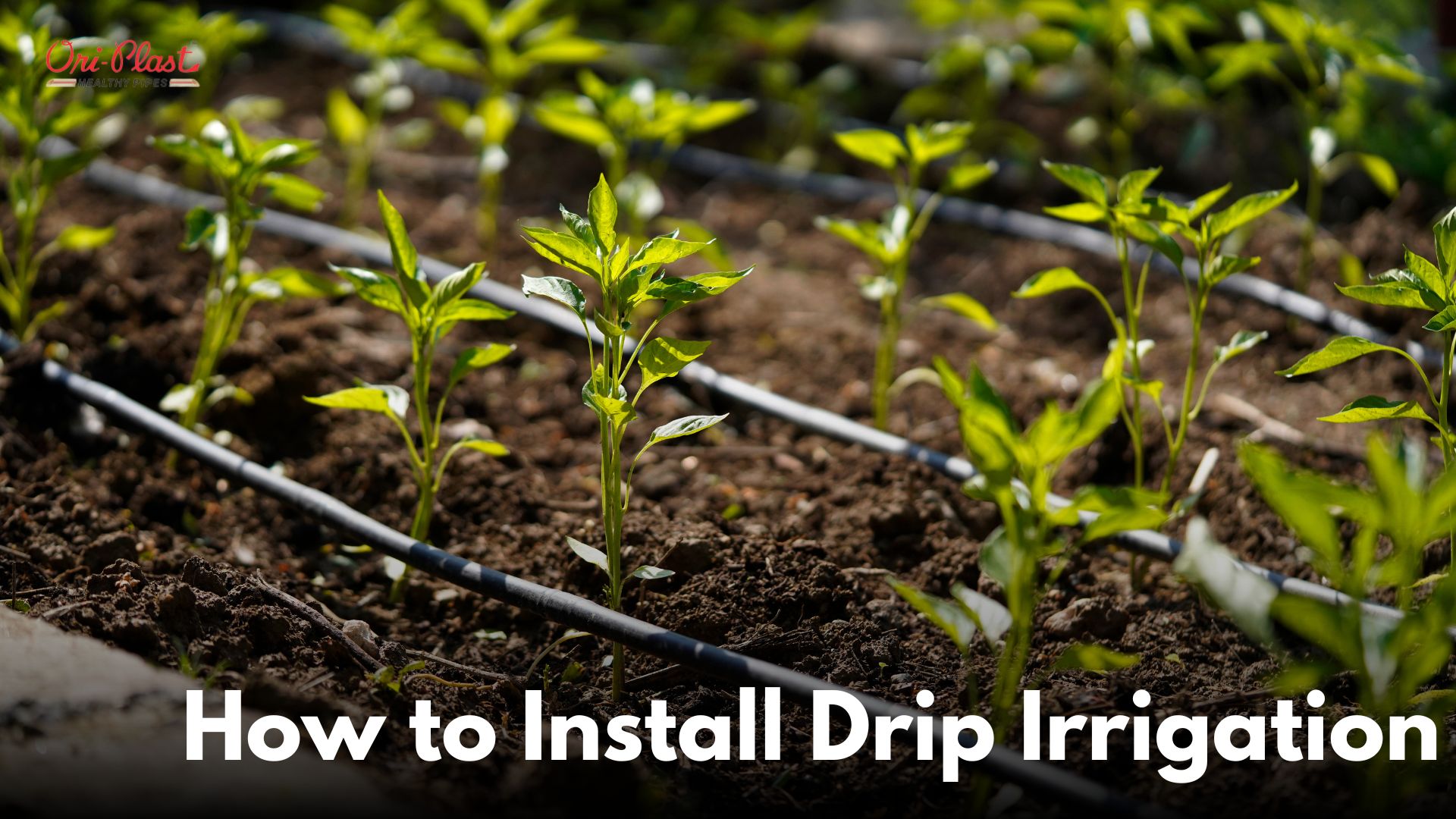When it comes to agricultural production, crop yield, and quality are two of the most important factors to consider. Farmers are always looking for ways to increase their yield and improve the quality of their crops. One way to achieve this is by using high-quality pipes in their irrigation systems.
High-quality pipes can have a significant impact on crop yield and quality, and in this blog post, we will discuss why. We will explore the benefits of using high-quality pipes, how they work, and what factors to consider when selecting the right pipes for your irrigation system. So, if you're a farmer or agricultural business owner looking to increase your crop yield and quality, keep reading to learn more about how high-quality pipes can help you achieve your goals.
What are high-quality pipes?
High-quality pipes are irrigation pipes that are designed to provide reliable and efficient water delivery to crops. They are typically made from durable materials that can withstand harsh weather conditions and resist damage from pests and other environmental factors.
In agriculture, there are several types of pipes used for irrigation systems, each with its own unique benefits and drawbacks. Some of the most common types of pipes used in agriculture include PVC pipes, polyethylene pipes, and drip irrigation pipes.
PVC pipes are made from a type of plastic that is strong, durable, and resistant to corrosion. They are often used in larger irrigation systems due to their ability to handle high water pressures.
Polyethylene pipes, on the other hand, are made from a flexible plastic material that is resistant to damage and easy to install. They are often used in smaller irrigation systems, such as those used in home gardens or small-scale farming operations.
Drip irrigation pipes are a type of polyethylene pipe that is designed to deliver water directly to the roots of plants. They are ideal for crops that require precise water delivery, such as fruits and vegetables.
It's important to select the right type of pipe for the intended purpose to ensure optimal performance and efficiency. Factors to consider when selecting a pipe include the crop being grown, the size of the irrigation system, and the environmental conditions in which the system will operate. By selecting the right pipe for the job, farmers can ensure that their crops receive the right amount of water at the right time, leading to increased yield and improved crop quality.
How high-quality pipes can help increase crop yield and quality?
Using high-quality pipes in irrigation systems can offer numerous benefits that can help increase crop yield and improve crop quality.
One of the primary benefits of using high-quality pipes is improved water management. High-quality pipes are designed to deliver water directly to the plant's roots, which helps to ensure that the plants receive the right amount of water at the right time. This helps to prevent overwatering, which can lead to waterlogged soils and reduced crop yields. Additionally, high-quality pipes can reduce water waste by delivering water precisely where it's needed, rather than allowing it to evaporate or run off.
Another benefit of using high-quality pipes is that they can help increase nutrient absorption and promote healthy plant growth. When water is delivered directly to the roots of plants, it carries with it essential nutrients that the plants need to grow and thrive. This can lead to increased yields and improved crop quality, as plants are better able to absorb the nutrients they need.
Examples of how farmers have increased their crop yield and quality by using high-quality pipes are numerous. For instance, a study conducted by the International Water Management Institute found that farmers in India who used drip irrigation systems with high-quality pipes were able to increase their rice yields by up to 50% while using 40% less water than traditional irrigation methods. Similarly, farmers in California who switched to using high-quality pipes and drip irrigation systems saw a 30% increase in crop yields and a 50% reduction in water usage.
Using high-quality pipes in irrigation systems can have a significant impact on crop yield and quality. By improving water management, promoting nutrient absorption, and reducing water waste, high-quality pipes can help farmers increase their yields and improve the overall health and quality of their crops.
Factors to consider when selecting high-quality pipes
Selecting the right high-quality pipes for an irrigation system is crucial to achieving optimal performance and efficiency. Here are some factors to consider when selecting high-quality pipes:
- Pipe material: Different pipe materials have varying levels of durability, flexibility, and resistance to corrosion and damage. PVC pipes are commonly used for larger irrigation systems, while polyethylene pipes are better suited for smaller systems.
- Pipe size: The size of the pipe is determined by the required flow rate and pressure. Calculating the required pipe size involves considering factors such as crop type, soil type, and water source. It's important to choose a pipe size that can handle the expected water flow without causing excessive pressure loss or reduced water delivery.
- Pipe thickness: The thickness of the pipe walls affects its strength and durability. Choosing a pipe with a thicker wall can help increase its lifespan and reduce the risk of damage from external factors.
When selecting high-quality pipes, it's important to choose the right type and size for the intended use and environment. Here are some tips for choosing the right pipe:
Consider the crop being grown: Different crops have different water requirements and growing conditions. Choosing a pipe that is appropriate for the crop being grown can help ensure that the plants receive the water they need.
Evaluate the irrigation system: The size and complexity of the irrigation system will impact the type and size of the pipes needed. It's important to choose pipes that are compatible with the system and can handle the expected water flow.
Consider the environment: Environmental factors such as temperature, humidity, and soil type can impact the performance of the pipes. Choosing pipes that are resistant to these factors can help ensure long-lasting and efficient irrigation.
Calculating the required pipe size involves considering factors such as crop type, soil type, and water source. Farmers can consult with irrigation experts or use online calculators to determine the appropriate pipe size for their specific needs.
In conclusion, selecting high-quality pipes involves considering factors such as pipe material, size, and thickness. Calculating the required pipe size and choosing the right pipe for the intended use and environment can help ensure optimal performance and efficiency in the irrigation system.
Maintenance and upkeep of high-quality pipes
Proper maintenance and upkeep of high-quality pipes are essential for ensuring optimal performance and longevity. Here are some tips on how to clean and maintain pipes to avoid damage and ensure longevity:
- Regular cleaning: Pipes should be cleaned regularly to remove debris, sediment, and other contaminants that can accumulate over time. This can be done using a flushing system or by manually cleaning the pipes.
- Inspection and repair: Regular inspections of the pipes can help identify any leaks or damage that may need to be repaired. Repairs should be carried out as soon as possible to avoid further damage and maintain optimal performance.
- Protect from external factors: Pipes should be protected from external factors such as extreme temperatures, UV radiation, and physical damage. This can be done by using insulation, UV protection coatings, or protective covers.
- Proper storage: When not in use, pipes should be stored properly to avoid damage and prolong their lifespan. This can be done by storing them in a dry and protected area.
In addition to these maintenance tips, it's important to carry out regular inspections and repairs to prevent leaks and other issues. Leaks can waste water and reduce the effectiveness of the irrigation system, which can ultimately impact crop yield and quality.
In conclusion, proper maintenance and upkeep of high-quality pipes is essential for ensuring optimal performance and longevity. Regular cleaning, inspection, and repair can help prevent damage and prolong the lifespan of the pipes. Protecting the pipes from external factors and storing them properly can also help maintain their integrity over time.
Conclusion
High-quality pipes play a critical role in increasing crop yield and quality by improving water management, promoting healthy plant growth, and reducing water waste. It's important to select the right type of pipe for the intended use and environment, considering factors such as pipe material, size, and thickness.
Proper maintenance and upkeep of high-quality pipes are also essential for optimal performance and longevity. Regular cleaning, inspection, and repair can help prevent damage and prolong the lifespan of the pipes. Protecting the pipes from external factors and storing them properly can also help maintain their integrity over time.
In conclusion, investing in high-quality pipes can have a significant impact on crop yield and quality. Farmers and agricultural businesses should consider the benefits of using high-quality pipes and make investments to improve their irrigation systems. With proper selection, maintenance, and upkeep, high-quality pipes can help maximize crop yields and promote healthy plant growth.
If you are looking for the best PVC pipes manufacturer in India, check out Oriplast PVC pipes.




